Promoting a Healthy Home Environment with Hypoallergenic Carpet
Jun 21, 2021 | Carpet One Floor & Home
Carpet flooring is a luxuriously beautiful staple in many homes, however for some, achieving this elevated comfy style isn’t always easy, as most allergy and asthma sufferers can attest. Perhaps you are struggling with carpet and allergies. Or, maybe you’re looking for an allergy-free carpet because you’re expecting a new baby and don’t want to deal with the hassle of constant carpet cleaning. Concerns about carpet’s ability to hold onto allergy-causing particles like dander and dust have led to greater carpet fiber technology advancements to promote a cleaner environment.
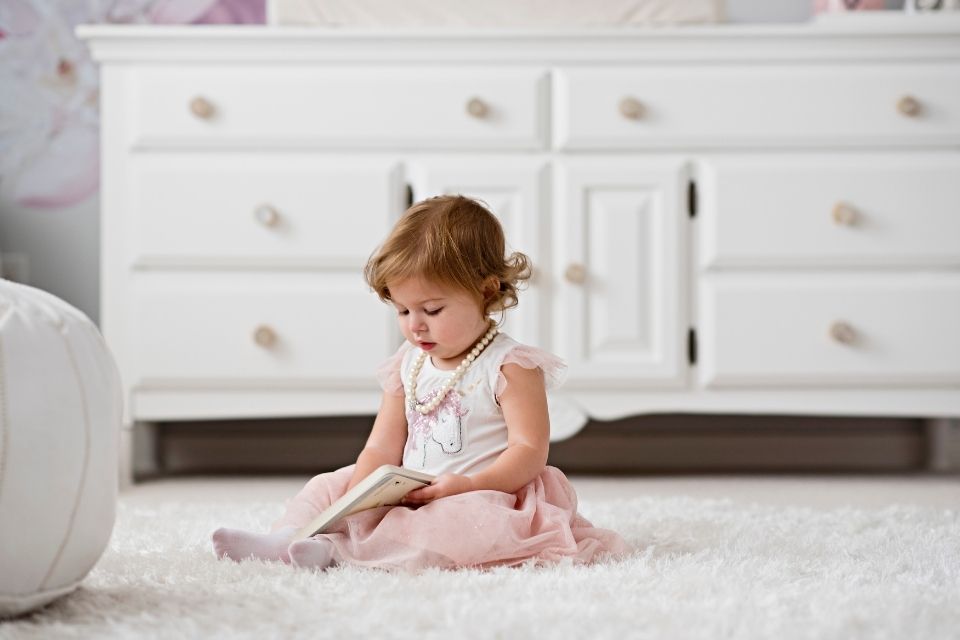
Design by CYNTHIA SODA Photography by MIKE CHAJECKI
So, leave all of your carpet worries behind because we’re here to tell you that there are allergy-free carpets out there that are both low maintenance and aesthetically appealing to give your home that soft, cozy character you’ve been searching for. Allergy-free carpets are an excellent investment, but what are the best types of carpets for carpet allergies?
Hypoallergenic Carpet
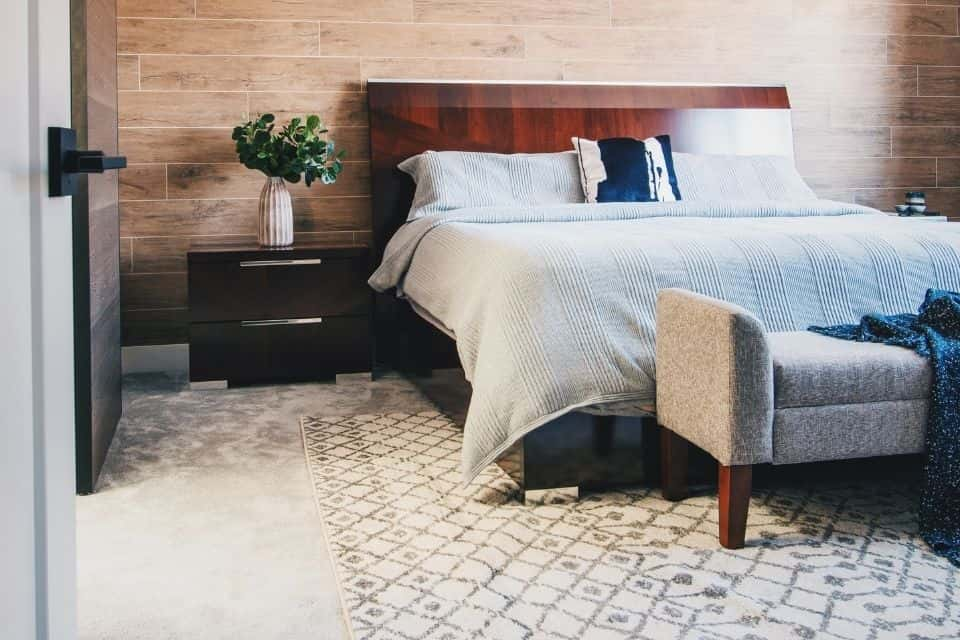
Design by LOUIS DUNCAN-HE
To begin with, let’s take a deep dive into what a hypoallergenic carpet is. Perfect for active families with children and pets, hypoallergenic carpets are merely carpets that don’t shed their fibers and significantly reduce the allergens in your home. Many carpets nowadays are hypoallergenic to some extent, although depending on carpet fiber, their effectiveness against allergens can vary.
Certain carpet fibers enhance the hypoallergenic performance of your floors. Manufactured fibers like nylon, olefin, and polypropylene are naturally mold and mildew-resistant, which is great for homes in climates with high humidity. If you’re searching for a carpet that’s both hypoallergenic and budget-friendly, synthetic carpets are a great choice.
Of course, you’ll also want to be sure that you’re choosing a carpet with a low VOC level as these can contribute to allergens in the air, as well. VOC chemicals are used to treat carpets before they are sold but upon installation, but these chemicals are often slowly released back into your home environment causing a bad smell and allergy issues. To prevent this, it’s best to look for rugs that have a low VOC level.
Wool Carpets
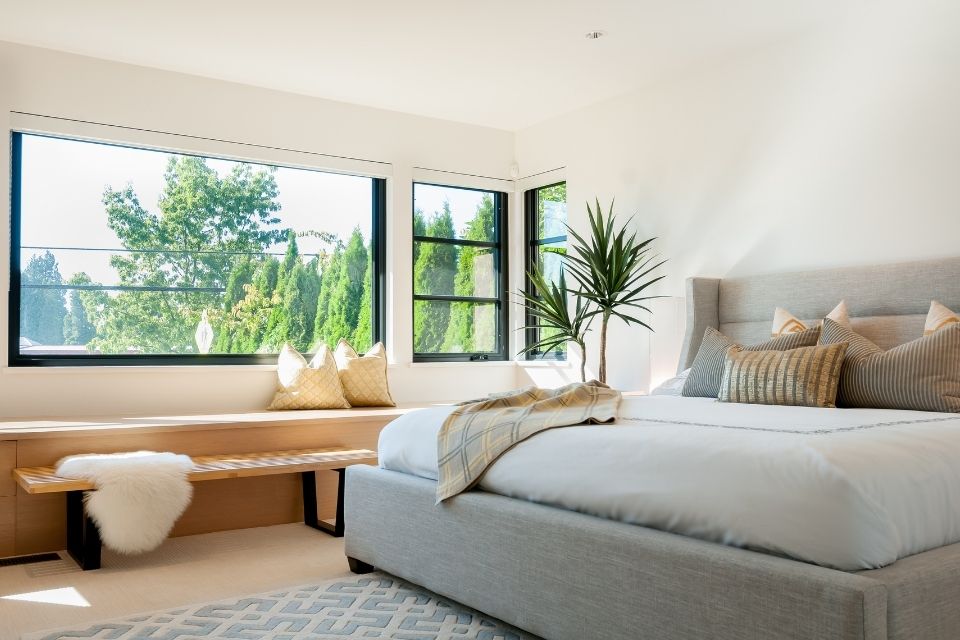
Design by KALU INTERIORS Photography by ALEEM KASSAM
Wool is one of the best hypoallergenic carpet solutions for allergy sufferers. Its natural hypoallergenic properties absorb airborne contaminants such as cooking fumes, cleaning agents, and deodorants to improve your indoor air quality. By creating a hostile environment for dust mites, wool carpets shed fewer particles when their fibers wear down.
Not only do wool carpets absorb contaminants, but they’re also incredibly resistant to bacteria, mold, and mildew. Since wool is so dry and has coil-shaped carpet fibers, it lacks moisture, blocking out dust mites.
Nylon Carpets
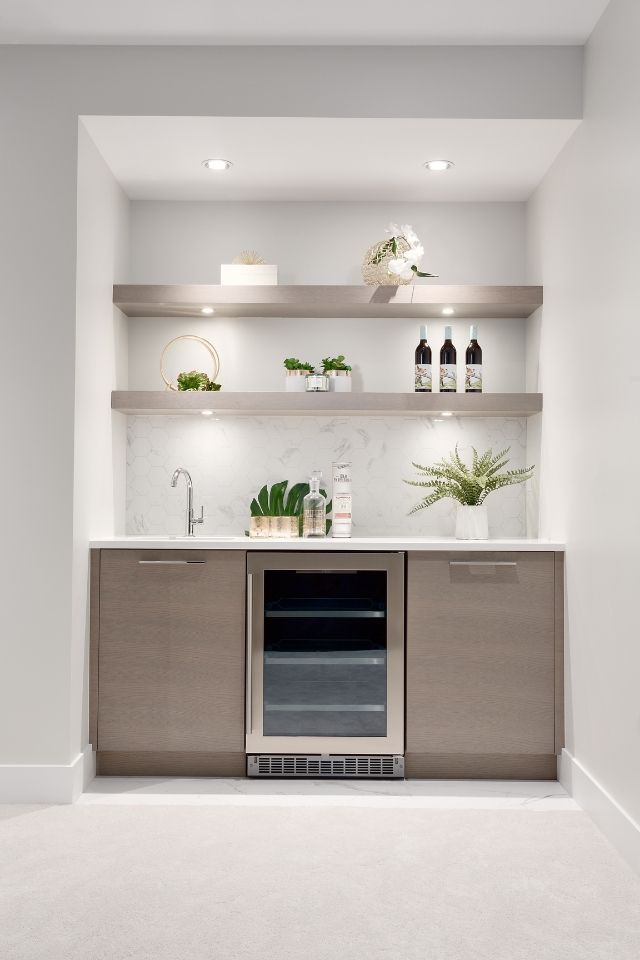
Design by KALU INTERIORS Photography by ALEEM KASSAM
One of the best carpets for allergies is a classic nylon carpet. Nylon fibers are resistant to dirt, moisture, and mildew. This artificial material causes pollen to dry out and prevents it from flourishing in your carpet. Nylon’s highly durable material bodes for active homes and high traffic areas as it’s easy to keep clean.
More affordable than organic wool, nylon carpeting in a low-pile cut is a significant stress reliever for those suffering from allergies. As a pet-friendly, easy-to-clean surface, nylon carpet comes in a dizzying variety of colors, patterns, and styles. Install nylon fiber carpet almost anywhere in your home where you’re looking to increase luxurious comfort.
Hypoallergenic Rugs
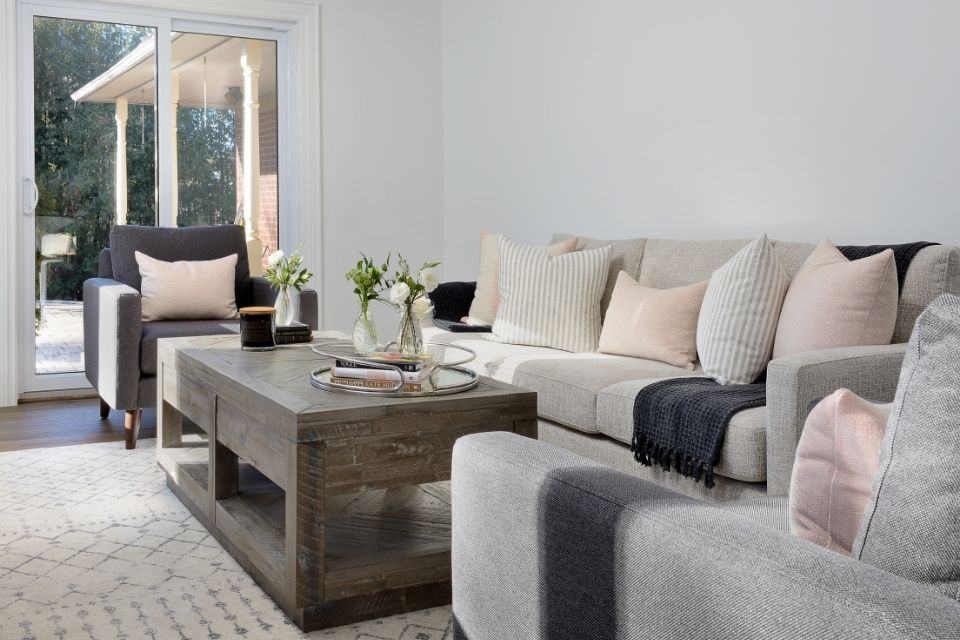
Design by MICHELLE BERWICK Photography by LARRY ARNAL
Carpet isn’t the only flooring solution for those with allergies. Sometimes luxury vinyl or hardwood makes more sense for your design and lifestyle needs. But adding hypoallergenic rugs to your space can elevate your interiors and protect these hard surfaces.
Rugs made out of synthetic materials like polypropylene best repel outside contaminants. When searching for a hypoallergenic rug, look for low, tightly woven area rugs as these are less likely to shed. Synthetic rugs come in various styles, textures, and colors —and bonus, most polypropylene area rugs can even be used outdoors!
Carpet Care Is Important
When searching for a hypoallergenic rug, the most important thing to remember is that your carpet will not be an end-all-be-all to your allergy solutions. No matter how hypoallergenic and allergen-free your carpet is, you should stick to a strict cleaning schedule and vacuum your carpets twice a week with a good vacuum filter. Add regular carpet washing and shampooing to your housekeeping routine so you can cut back on the amount of potentially irritating allergens in your home.
For more information on our selection of hypoallergenic carpets, talk to one of our flooring experts today at Carpet One Floor & Home to find a hypoallergenic carpet solution that’s perfect for your lifestyle.